This article was co-authored by Alexandra Janelli. Alexandra Janelli is a Certified Hypnotherapist, Anxiety & Stress Management Coach, and owner and founder of Modrn Sanctuary, a holistic health and wellness facility in Philadelphia, Pennsylvania. With over 10 years of experience, Alexandra specializes in helping clients push through their roadblocks to achieve their goals using her hypnotherapeutic approach. Alexandra holds a BS from the University of Miami. She graduated from the Hypnosis Motivation Institute with an Advanced Training Graduate Diploma in Hypnotherapy and Handwriting Analysis. Alexandra is also a Certified Life Coach from the iPEC Coach Training Program. She has worked with Academy Award Nominee Actors, world-renowned photographers, singers, top-level executives, and professionals across many sectors of business. Alexandra has been featured on MTV, Elle Magazine, Oprah Magazine, Men's Fitness, Swell City Guide, Dossier Journal, The New Yorker, and Time Out Chicago.
There are 16 references cited in this article, which can be found at the bottom of the page.
This article has been viewed 116,019 times.
Anxiety disorders are the most common form of mental illness in the US, so you’re not alone.[1] Anxiety and depression also frequently come hand and hand, so chances are if you have anxiety, you have depression, and vice versa. We know that dealing with anxiety and depression is no fun. Fortunately, there are ways you can decrease your anxiety and depression, such as through making lifestyle changes and trying different coping techniques. Give some of the ideas on this list a shot to help yourself start feeling better today.
Steps
Expert Q&A
-
QuestionHow can I overcome my fears?
 Alexandra JanelliAlexandra Janelli is a Certified Hypnotherapist, Anxiety & Stress Management Coach, and owner and founder of Modrn Sanctuary, a holistic health and wellness facility in Philadelphia, Pennsylvania. With over 10 years of experience, Alexandra specializes in helping clients push through their roadblocks to achieve their goals using her hypnotherapeutic approach. Alexandra holds a BS from the University of Miami. She graduated from the Hypnosis Motivation Institute with an Advanced Training Graduate Diploma in Hypnotherapy and Handwriting Analysis. Alexandra is also a Certified Life Coach from the iPEC Coach Training Program. She has worked with Academy Award Nominee Actors, world-renowned photographers, singers, top-level executives, and professionals across many sectors of business. Alexandra has been featured on MTV, Elle Magazine, Oprah Magazine, Men's Fitness, Swell City Guide, Dossier Journal, The New Yorker, and Time Out Chicago.
Alexandra JanelliAlexandra Janelli is a Certified Hypnotherapist, Anxiety & Stress Management Coach, and owner and founder of Modrn Sanctuary, a holistic health and wellness facility in Philadelphia, Pennsylvania. With over 10 years of experience, Alexandra specializes in helping clients push through their roadblocks to achieve their goals using her hypnotherapeutic approach. Alexandra holds a BS from the University of Miami. She graduated from the Hypnosis Motivation Institute with an Advanced Training Graduate Diploma in Hypnotherapy and Handwriting Analysis. Alexandra is also a Certified Life Coach from the iPEC Coach Training Program. She has worked with Academy Award Nominee Actors, world-renowned photographers, singers, top-level executives, and professionals across many sectors of business. Alexandra has been featured on MTV, Elle Magazine, Oprah Magazine, Men's Fitness, Swell City Guide, Dossier Journal, The New Yorker, and Time Out Chicago.
Certified Hypnotherapist & Anxiety and Stress Management Coach You can use hypnosis treatments to help you overcome your fears. For instance, your hypnotist might have your visualize being around the dog, then getting closer to it, then petting it.
You can use hypnosis treatments to help you overcome your fears. For instance, your hypnotist might have your visualize being around the dog, then getting closer to it, then petting it. -
QuestionHow do you reduce your risk of having anxiety?
 Alexandra JanelliAlexandra Janelli is a Certified Hypnotherapist, Anxiety & Stress Management Coach, and owner and founder of Modrn Sanctuary, a holistic health and wellness facility in Philadelphia, Pennsylvania. With over 10 years of experience, Alexandra specializes in helping clients push through their roadblocks to achieve their goals using her hypnotherapeutic approach. Alexandra holds a BS from the University of Miami. She graduated from the Hypnosis Motivation Institute with an Advanced Training Graduate Diploma in Hypnotherapy and Handwriting Analysis. Alexandra is also a Certified Life Coach from the iPEC Coach Training Program. She has worked with Academy Award Nominee Actors, world-renowned photographers, singers, top-level executives, and professionals across many sectors of business. Alexandra has been featured on MTV, Elle Magazine, Oprah Magazine, Men's Fitness, Swell City Guide, Dossier Journal, The New Yorker, and Time Out Chicago.
Alexandra JanelliAlexandra Janelli is a Certified Hypnotherapist, Anxiety & Stress Management Coach, and owner and founder of Modrn Sanctuary, a holistic health and wellness facility in Philadelphia, Pennsylvania. With over 10 years of experience, Alexandra specializes in helping clients push through their roadblocks to achieve their goals using her hypnotherapeutic approach. Alexandra holds a BS from the University of Miami. She graduated from the Hypnosis Motivation Institute with an Advanced Training Graduate Diploma in Hypnotherapy and Handwriting Analysis. Alexandra is also a Certified Life Coach from the iPEC Coach Training Program. She has worked with Academy Award Nominee Actors, world-renowned photographers, singers, top-level executives, and professionals across many sectors of business. Alexandra has been featured on MTV, Elle Magazine, Oprah Magazine, Men's Fitness, Swell City Guide, Dossier Journal, The New Yorker, and Time Out Chicago.
Certified Hypnotherapist & Anxiety and Stress Management Coach We all have anxiety—it's a natural state that happens. If you want to control it, you have to have an awareness of what's going on. Learn to identify your triggers, then figure out how to desensitize yourself to them so they don't have as much of an effect on you anymore. For instance, if you know dogs are a trigger for you, you can either avoid dogs at all costs, or you can take steps to desensitize yourself to that feeling.
We all have anxiety—it's a natural state that happens. If you want to control it, you have to have an awareness of what's going on. Learn to identify your triggers, then figure out how to desensitize yourself to them so they don't have as much of an effect on you anymore. For instance, if you know dogs are a trigger for you, you can either avoid dogs at all costs, or you can take steps to desensitize yourself to that feeling.
References
- ↑ https://www.health.harvard.edu/blog/nutritional-strategies-to-ease-anxiety-201604139441
- ↑ https://pubmed.ncbi.nlm.nih.gov/32658829/
- ↑ https://pubmed.ncbi.nlm.nih.gov/32658829/
- ↑ https://pubmed.ncbi.nlm.nih.gov/32658829/
- ↑ https://penntoday.upenn.edu/news/social-media-use-increases-depression-and-loneliness
- ↑ https://www.helpguide.org/articles/mental-health/laughter-is-the-best-medicine.htm
- ↑ https://www.uky.edu/hr/sites/www.uky.edu.hr/files/wellness/images/Conf14_Boundaries.pdf
- ↑ https://www.urmc.rochester.edu/encyclopedia/content.aspx?ContentID=4552&ContentTypeID=1
- ↑ https://www.apa.org/monitor/2012/07-08/ce-corner
- ↑ https://www.aafp.org/afp/2019/0515/p620.html
- ↑ https://www.ncbi.nlm.nih.gov/pmc/articles/PMC5241490/
- ↑ https://my.clevelandclinic.org/health/diseases/9536-anxiety-disorders
- ↑ https://my.clevelandclinic.org/health/diseases/9536-anxiety-disorders
- ↑ https://www.nhs.uk/live-well/quit-smoking/stopping-smoking-mental-health-benefits/
- ↑ https://adaa.org/tips
- ↑ https://www.health.harvard.edu/blog/nutritional-strategies-to-ease-anxiety-201604139441
- ↑ https://www.ncbi.nlm.nih.gov/pmc/articles/PMC6324500/
- ↑ https://www.ncbi.nlm.nih.gov/pmc/articles/PMC7671962/
- ↑ https://www.helpguide.org/articles/mental-health/mood-boosting-power-of-dogs.htm
- ↑ https://www.health.harvard.edu/mind-and-mood/what-are-the-real-risks-of-antidepressants

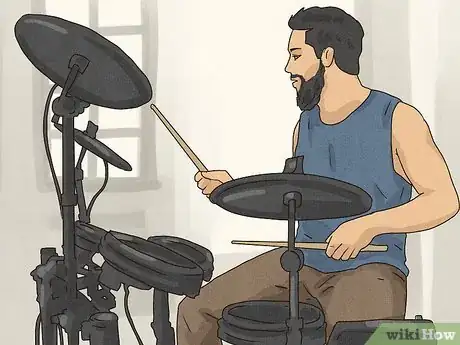
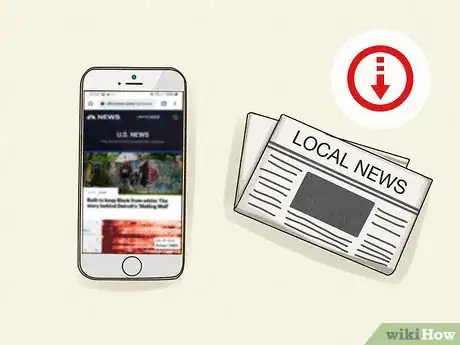

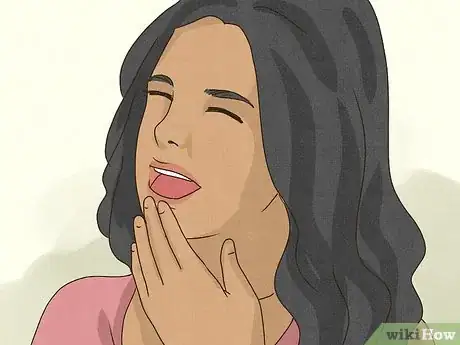
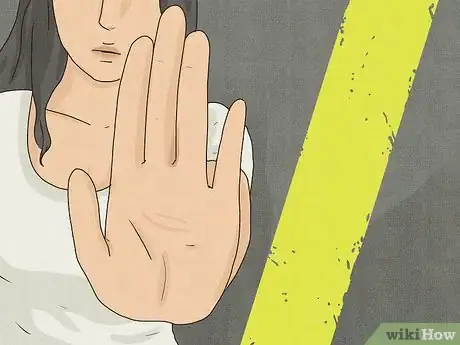
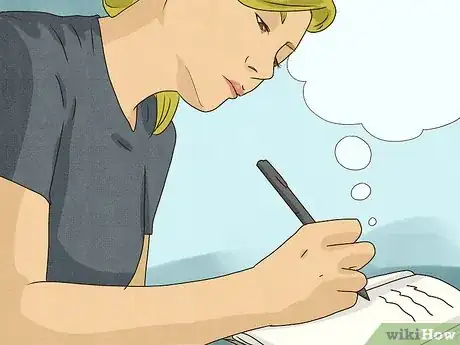
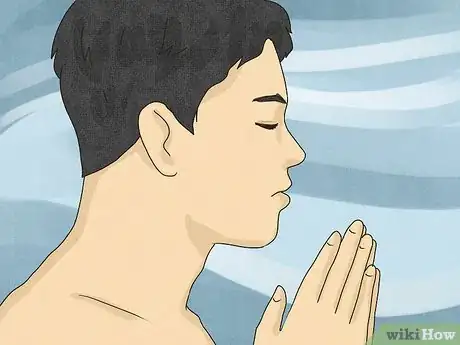
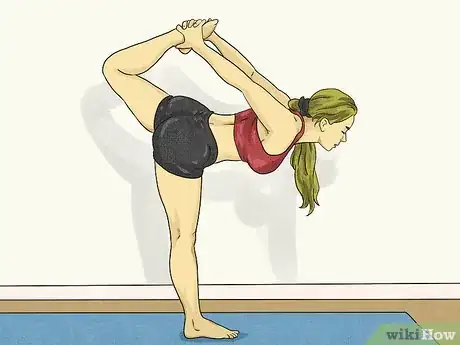
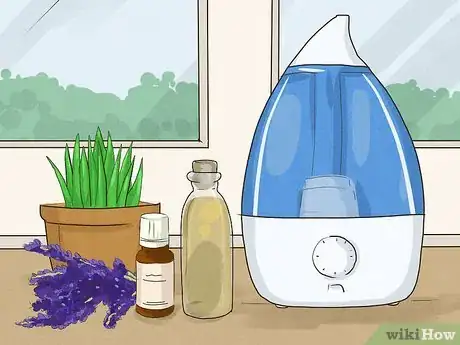
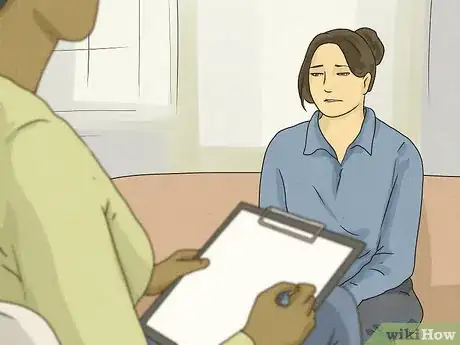
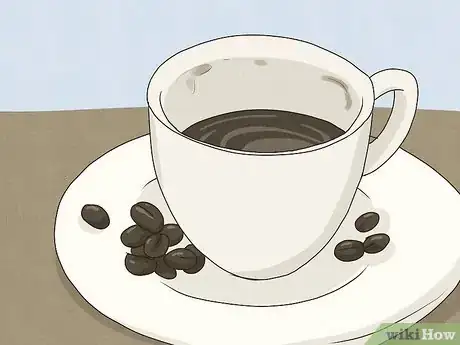
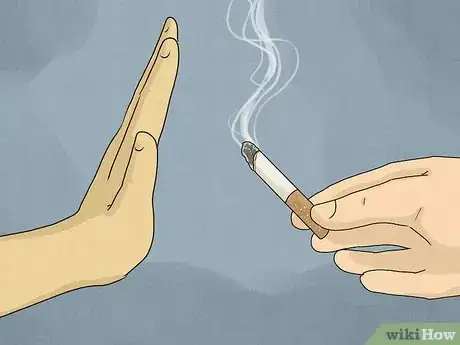
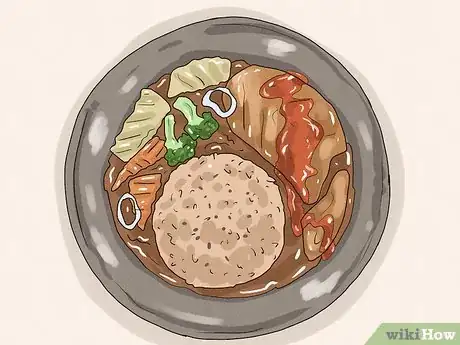

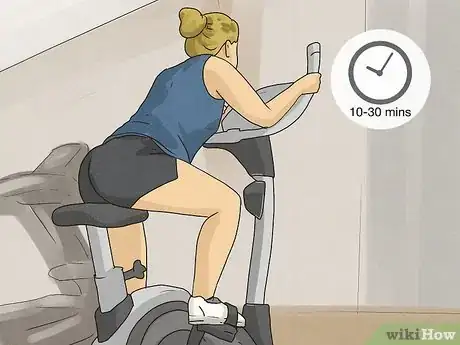

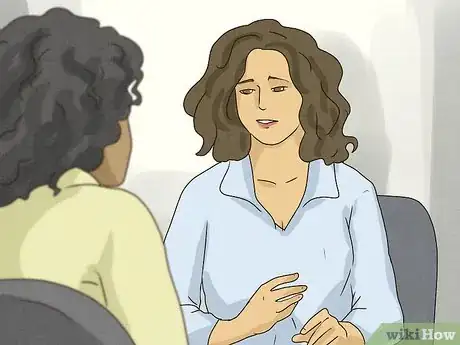





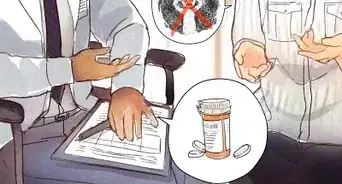
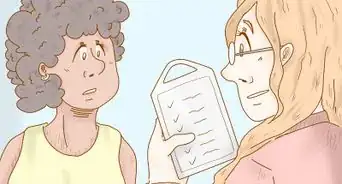
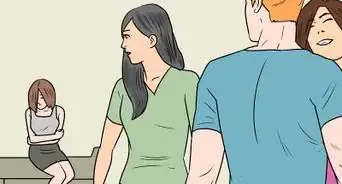

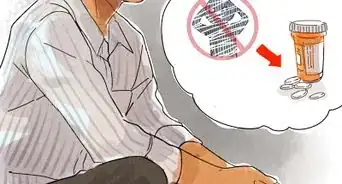


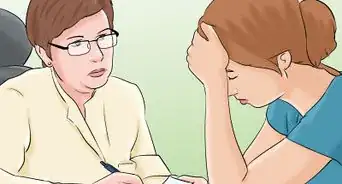















































Medical Disclaimer
The content of this article is not intended to be a substitute for professional medical advice, examination, diagnosis, or treatment. You should always contact your doctor or other qualified healthcare professional before starting, changing, or stopping any kind of health treatment.
Read More...